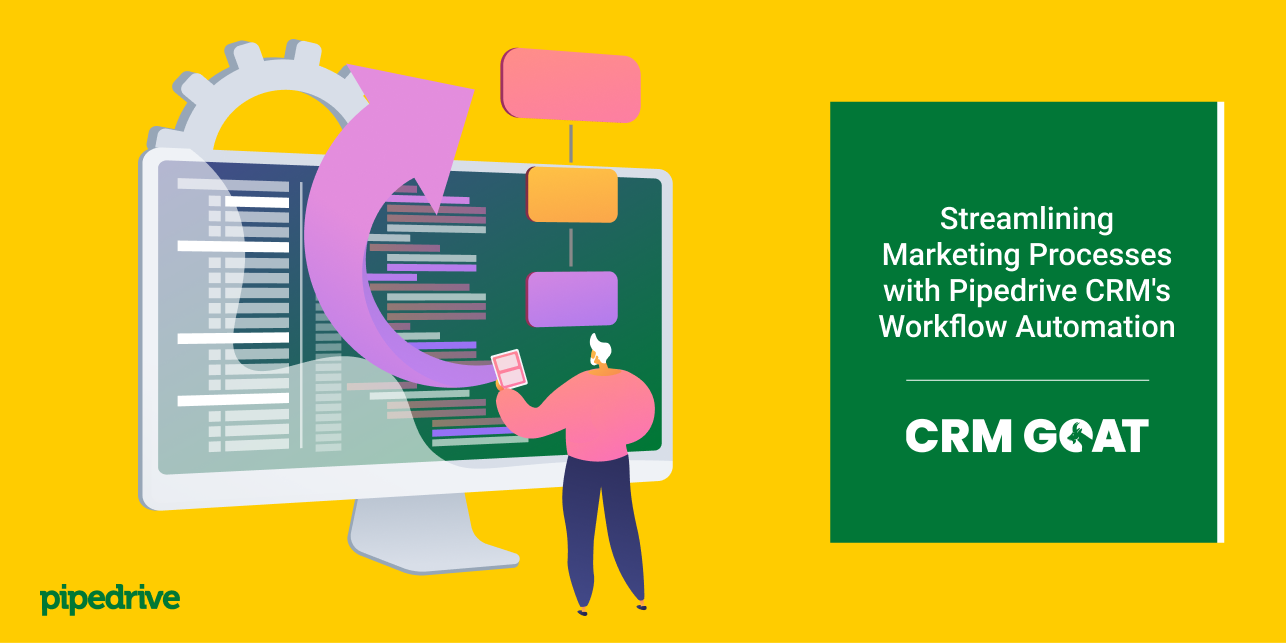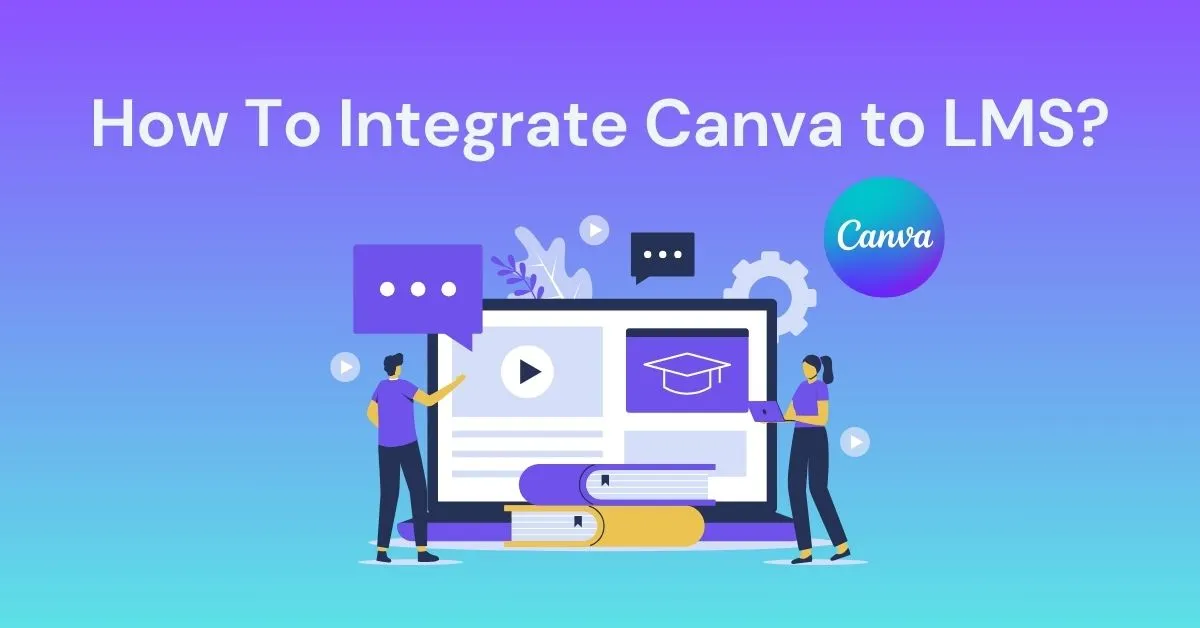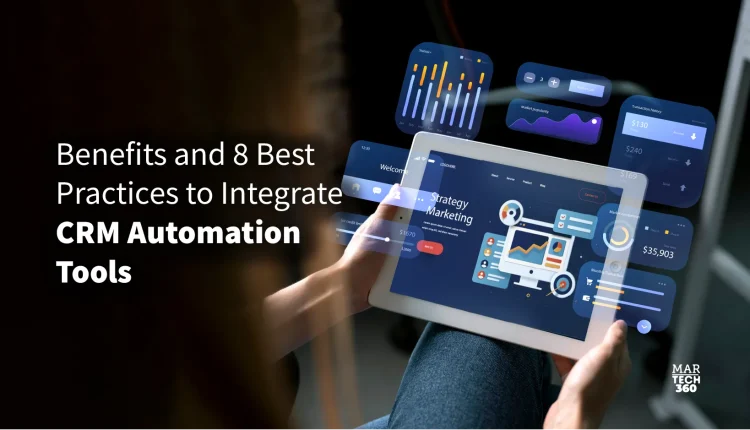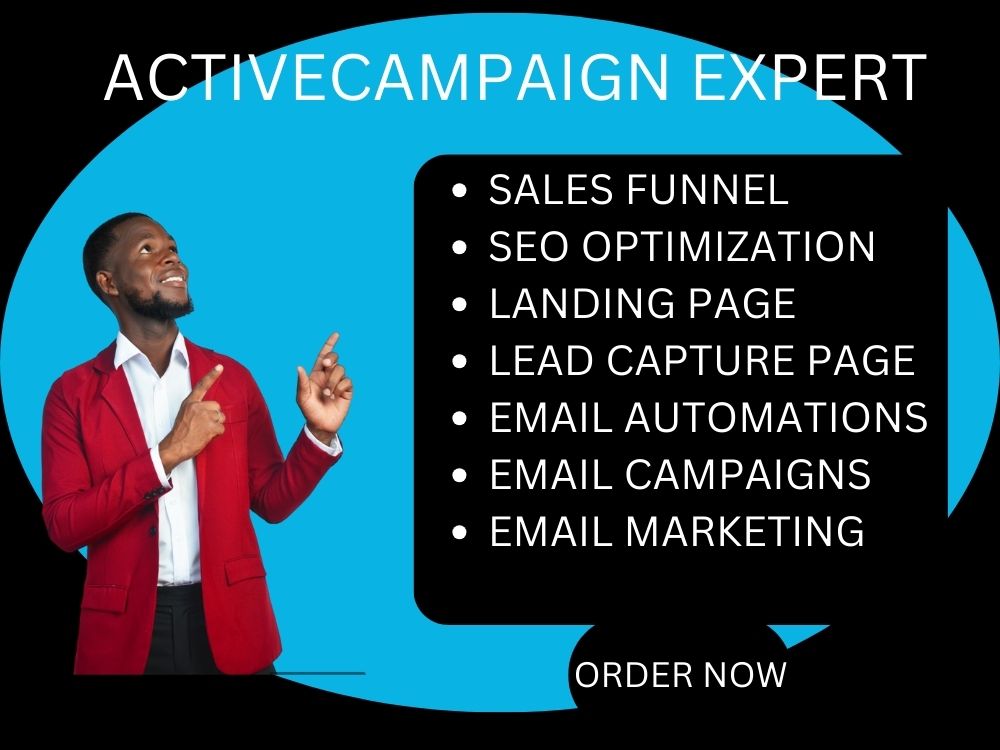Supercharge Your Marketing: A Deep Dive into CRM Integration with Mailchimp
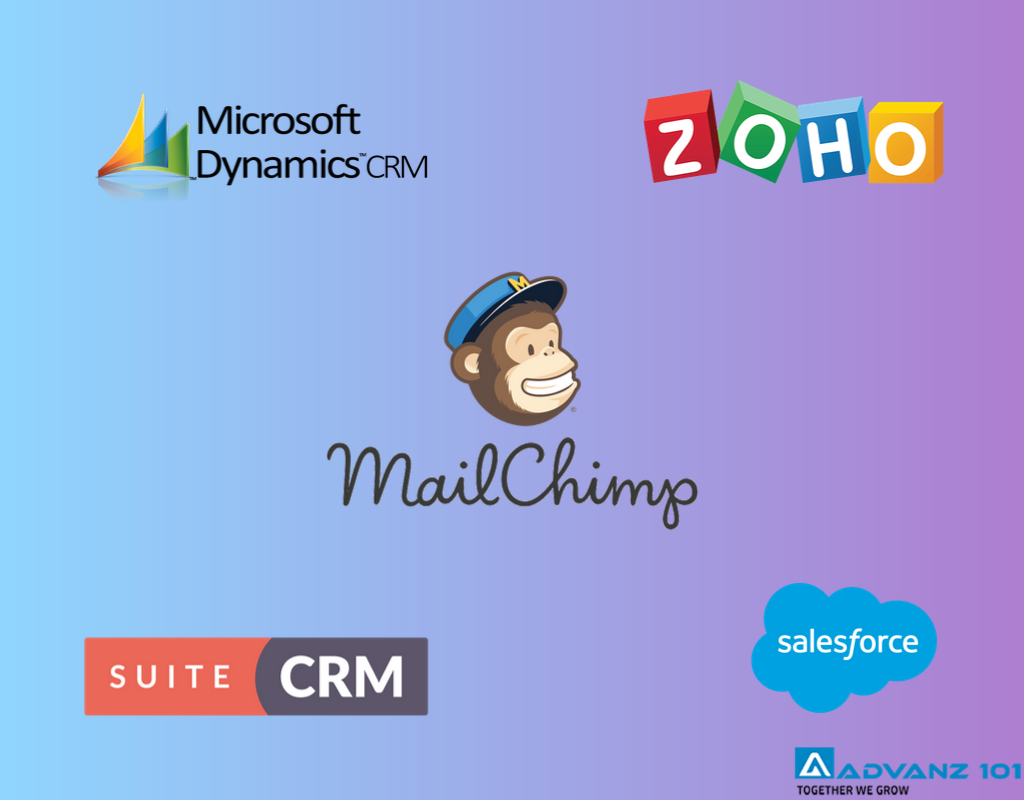
Supercharge Your Marketing: A Deep Dive into CRM Integration with Mailchimp
In the ever-evolving landscape of digital marketing, staying ahead of the curve is no longer a luxury; it’s a necessity. Businesses are constantly seeking ways to streamline operations, improve customer relationships, and maximize their return on investment (ROI). One of the most effective strategies for achieving these goals is integrating your Customer Relationship Management (CRM) system with your email marketing platform. This is where the powerful combination of CRM integration with Mailchimp comes into play. This article will delve into the intricacies of this integration, exploring its benefits, the steps involved, and best practices to ensure you get the most out of it. We’ll also look at different CRM systems and how they specifically integrate with Mailchimp.
What is CRM and Why Does it Matter?
Before we jump into the specifics of integrating with Mailchimp, let’s take a moment to understand the foundation: CRM. CRM, or Customer Relationship Management, is a technology that helps businesses manage and analyze customer interactions and data throughout the customer lifecycle. Think of it as a central hub for all your customer-related information. This includes contact details, purchase history, communication logs, and any other data points that provide insights into customer behavior and preferences.
The importance of CRM stems from its ability to:
- Improve Customer Relationships: By providing a 360-degree view of each customer, CRM empowers businesses to personalize interactions and deliver exceptional customer service.
- Increase Sales: CRM helps sales teams track leads, manage opportunities, and close deals more efficiently.
- Enhance Marketing Efforts: CRM provides valuable data for segmenting audiences, creating targeted campaigns, and measuring marketing ROI.
- Streamline Operations: CRM automates tasks, reduces manual data entry, and improves collaboration across departments.
In essence, CRM is the backbone of a customer-centric business. It allows you to understand your customers better, anticipate their needs, and tailor your interactions to create a more positive and profitable relationship.
The Power of Mailchimp in Your Marketing Arsenal
Mailchimp is a leading email marketing platform that empowers businesses to create and manage email campaigns, automate marketing workflows, and analyze campaign performance. It’s known for its user-friendly interface, robust features, and scalability, making it a popular choice for businesses of all sizes.
Mailchimp offers a wide range of features, including:
- Email Campaign Creation: Design and send beautiful, responsive email campaigns with ease. Mailchimp offers a drag-and-drop editor and a library of templates to get you started.
- Automation: Automate email workflows to nurture leads, welcome new subscribers, and send targeted messages based on customer behavior.
- Segmentation: Segment your audience based on various criteria, such as demographics, purchase history, and engagement level, to send more relevant and personalized emails.
- Analytics: Track key metrics like open rates, click-through rates, and conversions to measure the performance of your campaigns and make data-driven decisions.
- Landing Pages: Create landing pages to capture leads, promote products, and drive conversions.
Mailchimp’s strength lies in its ability to reach a large audience and deliver targeted messages that resonate with subscribers. It’s an essential tool for building brand awareness, driving traffic to your website, and ultimately, generating sales.
Why Integrate CRM with Mailchimp? The Benefits Unveiled
The true magic happens when you combine the power of CRM with the capabilities of Mailchimp. Integrating these two systems creates a synergistic effect, resulting in a more efficient, data-driven, and customer-centric marketing strategy. Here’s a breakdown of the key benefits:
- Enhanced Data Synchronization: The most significant advantage is the seamless synchronization of data between your CRM and Mailchimp. This ensures that your contact information, customer data, and purchase history are always up-to-date in both systems.
- Improved Segmentation and Targeting: With integrated data, you can create more sophisticated audience segments in Mailchimp based on CRM data. This allows you to send highly targeted emails that resonate with specific customer groups, leading to higher engagement and conversions.
- Personalized Email Marketing: Leverage CRM data to personalize your email campaigns. Address subscribers by name, recommend products based on their purchase history, and tailor your messaging to their specific needs and interests.
- Automated Workflows: Trigger automated email workflows in Mailchimp based on actions in your CRM. For example, you can automatically send a welcome email to new leads, a follow-up email to customers who abandon their cart, or a thank-you email after a purchase.
- Lead Scoring and Nurturing: CRM data can be used to score leads based on their engagement with your emails and website. This allows you to prioritize your sales efforts and nurture leads through the sales funnel.
- Improved Reporting and Analytics: Track the performance of your email campaigns in relation to your overall sales and marketing goals. Analyze which campaigns are driving the most revenue and identify areas for improvement.
- Increased Efficiency: Automate manual tasks, such as data entry and list management, freeing up your team to focus on more strategic initiatives.
- Better Customer Experience: By providing a more personalized and relevant experience, CRM integration with Mailchimp helps you build stronger customer relationships and increase customer loyalty.
In essence, integrating CRM with Mailchimp transforms your marketing efforts from a one-size-fits-all approach to a highly personalized and data-driven strategy that drives results.
How to Integrate CRM with Mailchimp: A Step-by-Step Guide
The integration process can vary depending on the CRM system you use, but the general steps remain consistent. Here’s a comprehensive guide to help you get started:
- Choose the Right Integration Method: Mailchimp offers several integration options, including direct integrations, third-party apps, and custom API integrations. The best method depends on your CRM system and your specific needs.
- Connect Your CRM and Mailchimp Accounts: This typically involves authenticating your accounts and granting Mailchimp access to your CRM data. The specific steps will vary depending on the integration method you choose.
- Map Your Data Fields: Identify the data fields in your CRM that you want to sync with Mailchimp. This includes contact details, custom fields, and any other relevant information. Then, map these fields to the corresponding fields in Mailchimp.
- Configure Your Sync Settings: Determine how often you want the data to sync, whether you want to sync all data or only specific segments, and any other settings that are relevant to your integration.
- Test Your Integration: Before you go live, test your integration to ensure that data is syncing correctly and that your email campaigns are being triggered as expected.
- Monitor and Optimize: Once your integration is live, monitor its performance and make adjustments as needed. This includes tracking data sync errors, optimizing your segmentation, and refining your email campaigns.
Let’s delve into specific examples and considerations for common CRM systems.
CRM System Specific Integration: A Closer Look
The integration process and available features often vary depending on the specific CRM you’re using. Here’s a closer look at some popular CRM systems and their integration capabilities with Mailchimp:
Salesforce and Mailchimp Integration
Salesforce is a leading CRM platform known for its robust features and scalability. Integrating Salesforce with Mailchimp allows you to sync your Salesforce contacts, leads, and opportunities with Mailchimp, enabling you to create targeted email campaigns based on your sales data.
Key Features:
- Contact Sync: Sync contacts, leads, and campaign members between Salesforce and Mailchimp.
- Segmentation: Create segments in Mailchimp based on Salesforce data, such as lead source, industry, or opportunity stage.
- Salesforce Campaigns: Track the performance of your email campaigns within Salesforce.
- Reporting: Analyze the impact of your email marketing on your sales pipeline.
How to Integrate: Salesforce offers a direct integration with Mailchimp through the AppExchange. You can install the Mailchimp for Salesforce package and follow the instructions to connect your accounts and configure your sync settings.
HubSpot CRM and Mailchimp Integration
HubSpot CRM is a free CRM platform that offers a suite of marketing, sales, and customer service tools. Its integration with Mailchimp is seamless, allowing you to sync your HubSpot contacts and leverage HubSpot data for targeted email marketing.
Key Features:
- Contact Sync: Sync contacts and company information between HubSpot and Mailchimp.
- List Segmentation: Create segments in Mailchimp based on HubSpot properties, such as lead status, lifecycle stage, and custom properties.
- Workflow Automation: Trigger automated email workflows in Mailchimp based on HubSpot actions, such as form submissions or deal stage changes.
- Reporting: Track the performance of your email campaigns within HubSpot.
How to Integrate: HubSpot offers a direct integration with Mailchimp through its App Marketplace. You can connect your accounts and configure your sync settings within the HubSpot interface.
Zoho CRM and Mailchimp Integration
Zoho CRM is a versatile CRM platform that offers a wide range of features and integrations. Its integration with Mailchimp allows you to sync your Zoho CRM contacts and leverage Zoho CRM data for targeted email marketing.
Key Features:
- Contact Sync: Sync contacts, leads, and accounts between Zoho CRM and Mailchimp.
- Segmentation: Create segments in Mailchimp based on Zoho CRM data, such as lead source, industry, or deal stage.
- Campaign Tracking: Track the performance of your email campaigns within Zoho CRM.
- Automation: Trigger automated email workflows in Mailchimp based on Zoho CRM actions.
How to Integrate: Zoho CRM offers a direct integration with Mailchimp. You can connect your accounts and configure your sync settings within the Zoho CRM interface.
Other CRM Systems
Mailchimp offers integrations with a wide range of other CRM systems, including:
- Pipedrive
- SugarCRM
- Microsoft Dynamics 365
- Act!
- Insightly
The integration process and available features may vary depending on the specific CRM system. Check the Mailchimp integration directory or your CRM’s documentation for more information.
Best Practices for Successful CRM and Mailchimp Integration
To maximize the benefits of your CRM and Mailchimp integration, follow these best practices:
- Plan Your Integration: Before you start the integration process, take the time to plan your strategy. Define your goals, identify the data fields you want to sync, and determine how you will use the integrated data for your email campaigns.
- Clean Your Data: Ensure that your CRM data is clean and accurate before you sync it with Mailchimp. This includes removing duplicate contacts, standardizing data formats, and verifying contact information.
- Segment Your Audience: Leverage CRM data to create highly targeted audience segments in Mailchimp. This will allow you to send more relevant and personalized emails.
- Personalize Your Emails: Use CRM data to personalize your email campaigns. Address subscribers by name, recommend products based on their purchase history, and tailor your messaging to their specific needs and interests.
- Automate Your Workflows: Automate email workflows to nurture leads, welcome new subscribers, and send targeted messages based on customer behavior.
- Track Your Results: Monitor the performance of your email campaigns and track key metrics, such as open rates, click-through rates, and conversions. Use this data to optimize your campaigns and improve your results.
- Keep Your Data Updated: Regularly update your CRM data to ensure that it is accurate and up-to-date in both systems.
- Train Your Team: Train your team on how to use the integrated systems and how to leverage the data for their marketing and sales efforts.
- Regularly Review and Optimize: The marketing landscape evolves rapidly. Regularly review the performance of your integration and optimize your strategies to ensure you’re maximizing the benefits. This might involve refining your segmentation, updating your email content, or exploring new automation possibilities.
By following these best practices, you can ensure that your CRM and Mailchimp integration is a success and that you achieve your marketing goals.
Troubleshooting Common Integration Issues
While CRM and Mailchimp integrations are generally straightforward, you may encounter some issues along the way. Here are some common problems and how to address them:
- Data Sync Errors: Data sync errors can occur for various reasons, such as incorrect field mapping, data format issues, or API limitations. Check your sync settings and review your data to identify and resolve the problem.
- Duplicate Contacts: Duplicate contacts can occur if you have multiple lists or if contacts are added through different channels. Use data deduplication tools or techniques to merge or remove duplicate contacts.
- Missing Data: If data is missing from your email campaigns, check your field mapping and ensure that the correct fields are being synced.
- Slow Sync Times: If your data syncs are taking too long, consider optimizing your sync settings, reducing the amount of data being synced, or contacting Mailchimp support for assistance.
- Integration Disconnections: Integrations can sometimes disconnect due to changes in API keys, password updates, or platform updates. Regularly check your integration status and reconnect if necessary.
If you encounter persistent issues, consult the Mailchimp or your CRM system’s documentation or contact their support teams for assistance.
The Future of CRM and Email Marketing Integration
The integration of CRM and email marketing platforms is constantly evolving. As technology advances, we can expect to see even more sophisticated integrations that offer greater automation, personalization, and data-driven insights. Some potential future trends include:
- AI-Powered Personalization: Artificial intelligence (AI) will play an increasingly important role in personalizing email campaigns. AI algorithms can analyze customer data to predict their needs and preferences, allowing for highly targeted and relevant messaging.
- Advanced Automation: Automation will become even more sophisticated, with automated workflows that are triggered by a wider range of customer behaviors and events.
- Cross-Channel Marketing: CRM and email marketing platforms will integrate with other marketing channels, such as social media, SMS, and push notifications, to create a seamless cross-channel marketing experience.
- Real-Time Data Sync: Real-time data sync will become more prevalent, ensuring that data is always up-to-date in both systems.
- Enhanced Analytics: Advanced analytics will provide deeper insights into customer behavior and campaign performance, enabling businesses to make more data-driven decisions.
Businesses that embrace these future trends will be well-positioned to gain a competitive advantage and build stronger customer relationships.
Conclusion: Unlock Your Marketing Potential
Integrating your CRM with Mailchimp is a powerful strategy for supercharging your marketing efforts. By synchronizing your data, creating targeted segments, personalizing your emails, and automating your workflows, you can build stronger customer relationships, increase engagement, and drive conversions. This integration empowers you to move beyond generic mass emails and embrace a customer-centric approach that delivers real results.
The key to success lies in careful planning, data hygiene, and ongoing optimization. Choose the right integration method for your needs, clean your data, segment your audience, and personalize your emails. By following these best practices, you can unlock the full potential of CRM and Mailchimp integration and transform your marketing into a powerful engine for growth. Don’t just send emails; create meaningful experiences that resonate with your audience and drive business success. The future of marketing is here, and it’s integrated.

